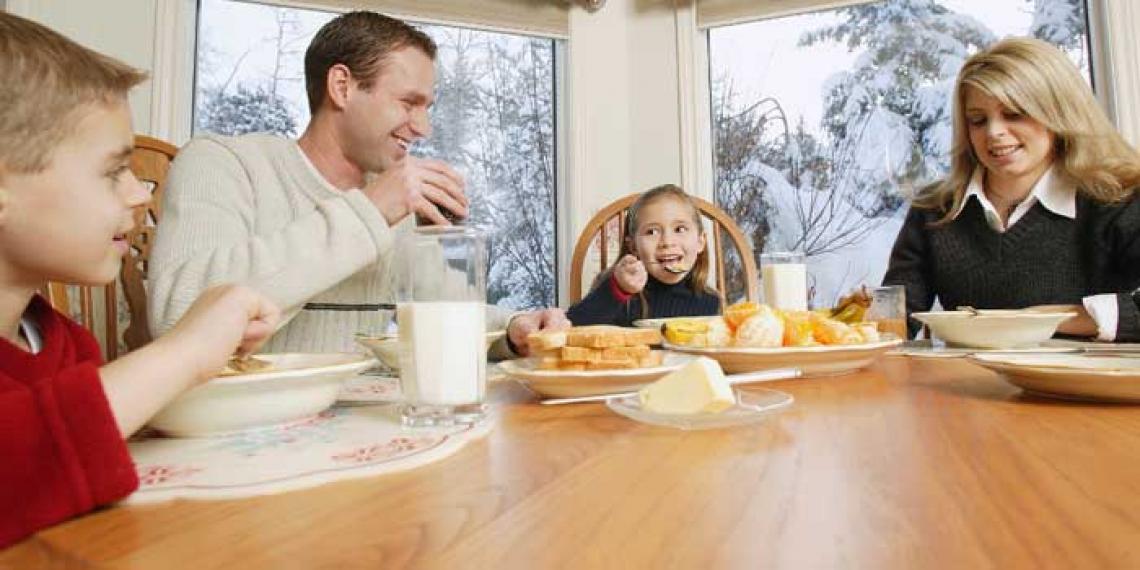You are here
Family mealtimes

‘The table is the point for family reunion three times a day, and nothing should be lacking that we can do to make those meetings pleasant and cheerful.’ (Published advice, 1896)
In many cultures, family meals are valued as a way to share and nurture love, although in New Zealand it can be a real struggle to get everyone to sit down to eat together even once a day. But doing so may be more important than we previously thought.
A study by the Families Commission reports that taking time to share a family meal has far-reaching health and wellbeing benefits for young people. It says, ‘the simple act of sharing food and spending time together’ is a positive activity for teenagers. The research used data from a national survey of over 9000 secondary school students from 96 schools. It found that one-third of the young people shared meals with their families on seven or more occasions in the previous week. An additional 40 per cent ate together as a family between three and six times a week.
Carl Davidson, Chief Commissioner of the Families Commission, says, ‘Teens who eat frequent meals with their family … report better health, including fewer indicators of depressive mood and fewer risk-taking behaviours such as binge drinking, smoking, marijuana use, and inconsistent contraception use.’
Students who ate frequent family meals were more likely to report better family relationships and parental monitoring. They were also more likely to report that Mum and Dad encouraged them to eat healthy food, including fruit and vegetables.
Of course, like eating good amounts of fruit and veges, knowing that eating together is good for us and actually doing so, are two different things. If your family has to be dragged to the dinner table, or seems to inhale their food and sprint away within minutes, here are a few suggestions to make meal times more enticing:
- plan interesting meals—if you keep special treats for sit-down meals only, the family will be keener to come to the table
- if you have limited time (and the family doesn’t want to bond over the dishes), consider one-pot meals—cooking ahead reduces the stress of meal preparation
- make meal time positive—keep arguments, gossip and criticism away from the dinner table
- ask open-ended questions and listen carefully—if your children know the dinner table is somewhere they’re celebrated, they’ll be more inclined to show up.
There’s certainly no need to see bringing the family together over food as a mum-only chore these days. A Colmar Brunton survey (also carried out this year) reported that Kiwi blokes are spending far more time cooking than in the past (43 per cent now class themselves as ‘passionate foodies’ who see cooking as a hobby, not a chore). In fact, there’s no reason why the whole family can’t get involved.
Meal time presents a good opportunity to attend to the family’s spiritual needs, too. A simple prayer before eating focuses everyone’s attention on God’s provision and fosters an attitude of gratitude that extends beyond dinner.
So, rather than settling for the routine where your teens grab their food whenever and eat it wherever, re-engage around the dinner table. You’re doing more than feeding the body—you’re feeding spirit and soul as well.